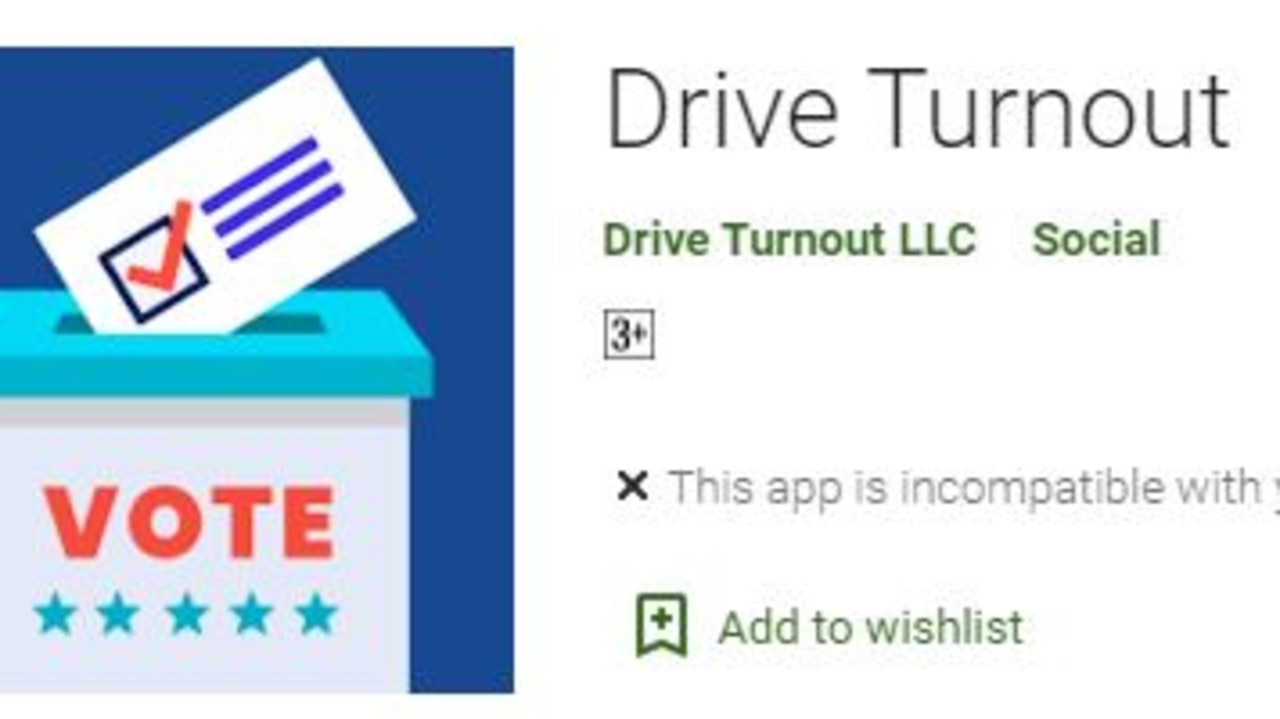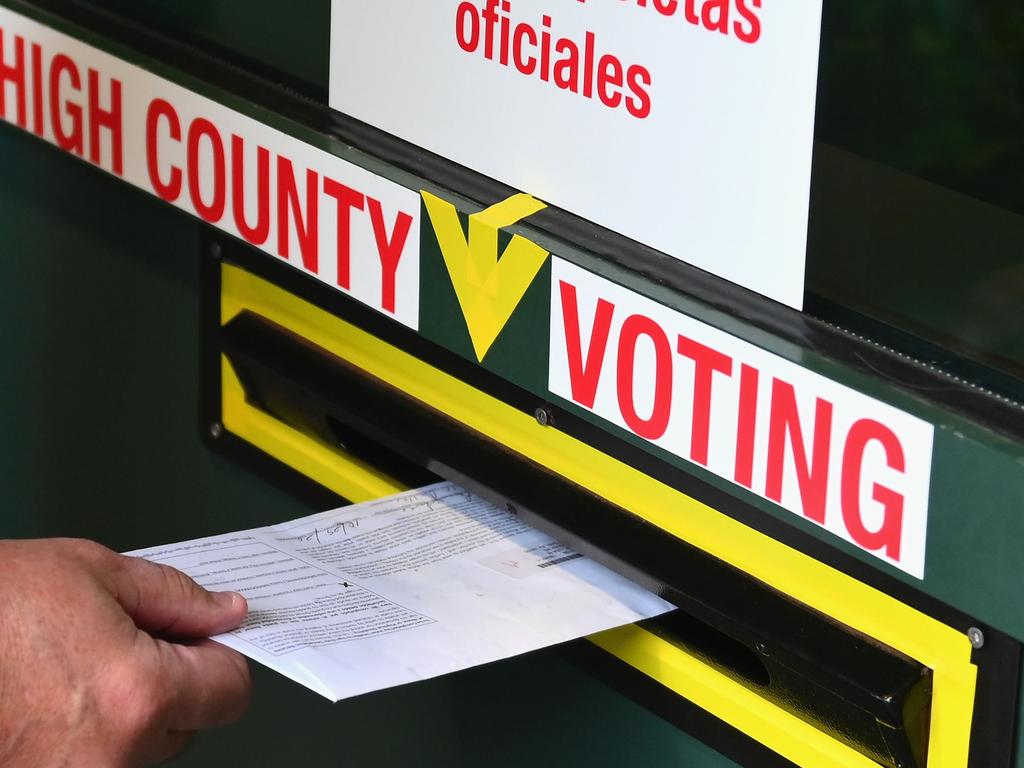US Election 2020: Apple reject Drive Turnout ballot verification app
A former Facebook engineer who wanted to have a “positive impact” on the US election has questioned why Apple banned his app.
An app designed to verify votes in a key state in the US election has been blocked by Apple.
According to The Information, Apple blocked the Drive Turnout app because the way it used a publicly available database violated one of its guidelines – however Google had no problem allowing the app on the Google Play Store.
The app used the state of Pennsylvania’s online tool for verifying the status of an election ballot so people voting in the state can see whether their vote has been counted yet, or if they had done something wrong that they needed to correct.
The New York Times has ranked Pennsylvania the swing state most likely to have problems counting ballots.
RELATED: ‘It’s terrible’: Trump explodes in rant
RELATED: Landslide predicted by US election polls
In 2016 it was a close race, with Donald Trump winning the state by just 44,292 votes, out of more than six million cast.
This time around, with the coronavirus pandemic running rampant in the US, more Americans are voting by post – and Pennsylvania’s mail voting rules include provisions like “secrecy envelopes” to conceal a voter’s identity.
An outer envelope containing the voter’s name and address house an anonymised envelope inside, with a ballot to be counted later.
This is to verify that the person hasn’t voted more than once, without revealing who they’ve voted for, whether its incumbent Donald Trump, challenger Joe Biden or someone else (Kanye West perhaps).
RELATED: Facebook’s plan to stop Trump ‘win’
RELATED: Late clue about who will win election
Former Facebook engineer Ari Steinberg designed the app, and told The Information he did it during his spare time as engineering director at Airbnb in the hope of having a “positive impact on the election” by allowing people to check whether they or other people they know in Pennsylvania had their votes counted.

RELATED: Apple’s sneaky double standard
Apple took close to two weeks to inform Mr Steinberg his app wouldn’t be allowed on the App Store because it violated a guideline stating “apps that compile personal information from any source that is not directly from the user or without the user’s explicit consent, even public databases, are not permitted on the App Store”.
Drive Turnout wanted to access a user’s iPhone address book and their Facebook contacts to check against the state’s database.

Apple told The Information that meant it couldn’t go on the App Store because those contacts hadn’t given their explicit permission, but Mr Steinberg found that response puzzling given the iPhone address book already allows you to import contacts without their explicit consent.
He was also frustrated that it took so long for Apple to inform him of the decision and questioned whether it should have the power to reject the app.
“Why does it fall to them to make a call on whether it’s creepy or not?” Mr Steinberg wondered.
“Should it be Apple making these decisions?”
Apple is facing increased scrutiny for the monopoly control it exerts over the App Store, including during a recent antitrust investigation in the US and the Australian consumer watchdog’s Digital Platforms Inquiry.



